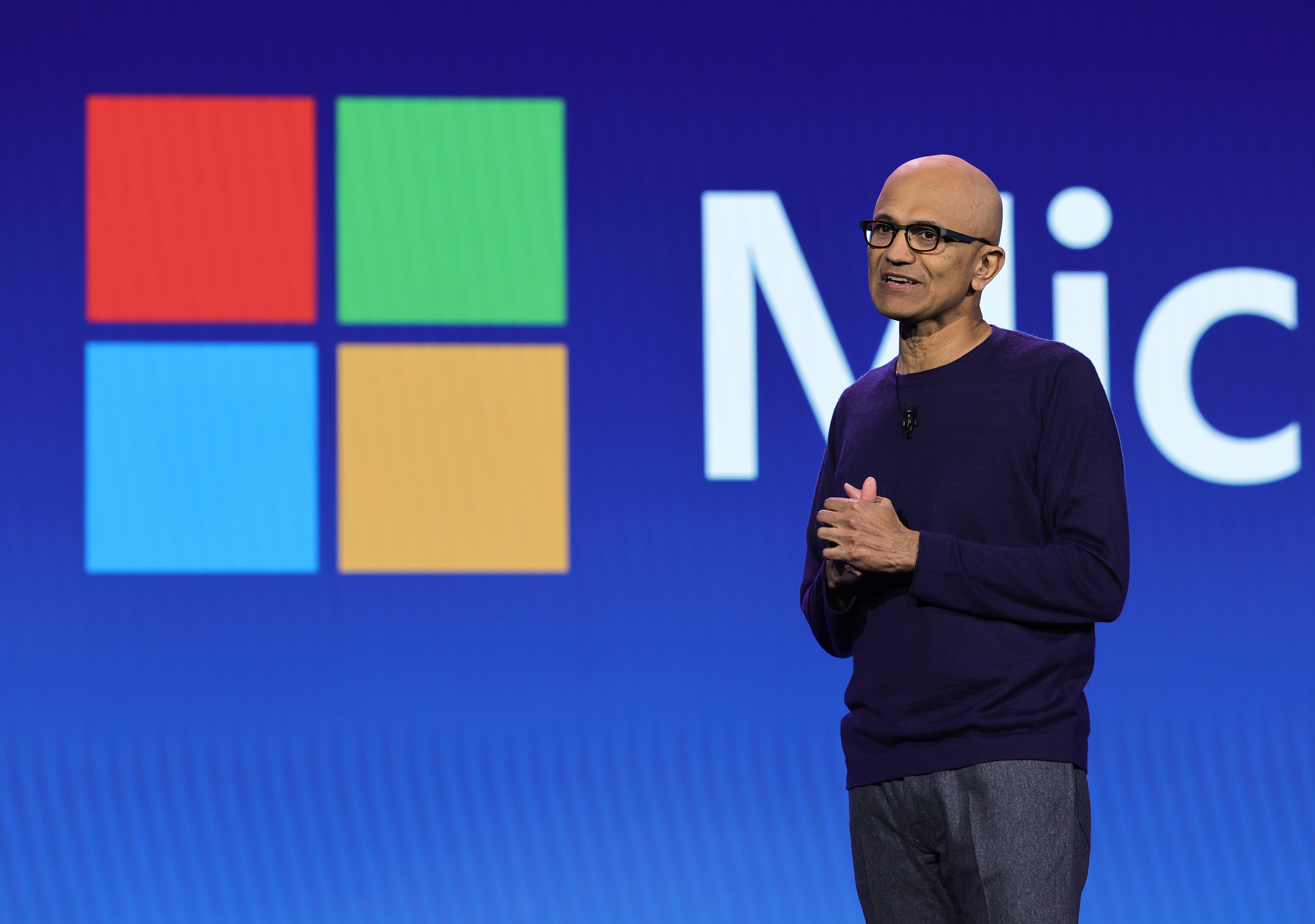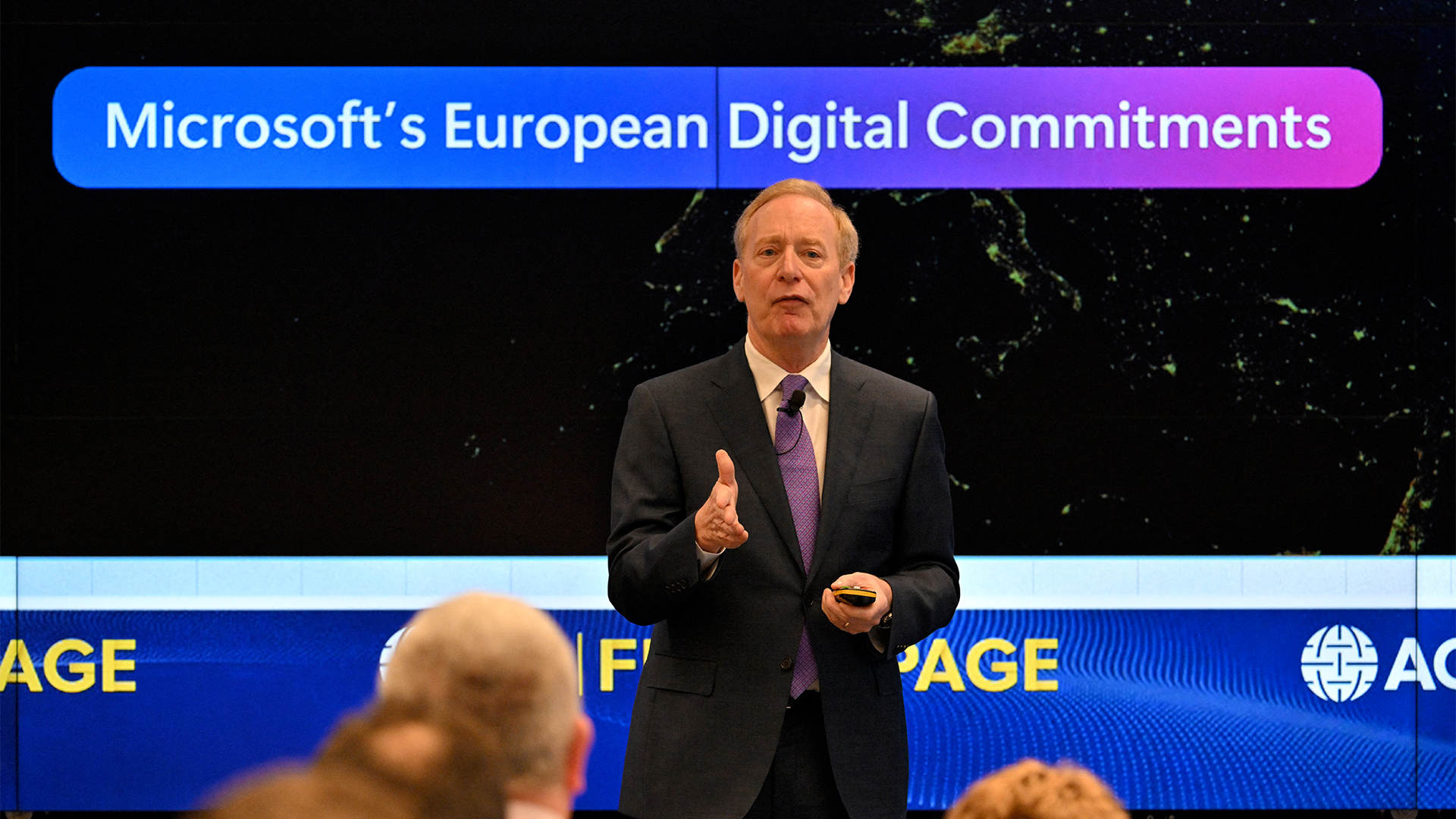Why Microsoft is spending billions on AI and cloud computing in Europe
Microsoft is contending with huge demand for cloud computing services and lingering concerns about data sovereignty - and it’s spending big to stay ahead of competition


Sign up today and you will receive a free copy of our Future Focus 2025 report - the leading guidance on AI, cybersecurity and other IT challenges as per 700+ senior executives
You are now subscribed
Your newsletter sign-up was successful
Microsoft has announced plans to quadruple its spending on cloud computing and AI infrastructure in Spain, part of a wave of investments the tech giant has been making across Europe in recent months.
The software giant said it is going to invest $2.1bn in AI and cloud infrastructure in Spain by 2025. It’s Microsoft's largest investment in Spain in its 37 years of operating there.
As part of the move, Microsoft will open a data center cloud region located in Madrid, and plans to open another data center in Aragon that will serve European companies and public bodies. Across both these two sites, Microsoft said it will provide its entire range of AI offerings to Spanish and European companies.
These investments can make quite a difference even outside of the technology sector. The data centers in Spain could add €8.4bn to Spanish GDP and contribute to the creation of 69,000 jobs in the period up to 2030, according to figures from tech analyst IDC.
Microsoft said it will work with the Spanish government on responsible AI and support industry and government cyber security, for example, by working with the Spanish National Cybersecurity Institute and offering access to telemetry and information on potential threats and cyber attacks.

It’s certainly not the first big cloud and AI investment Microsoft has showcased recently.
Earlier this month, it unveiled plans to invest €3.2bn in Germany, which again will be its largest investment in the country in its 40-year history of operating there.
Sign up today and you will receive a free copy of our Future Focus 2025 report - the leading guidance on AI, cybersecurity and other IT challenges as per 700+ senior executives
The tech giant plans to expand its data centers for cloud and AI applications and train more than 1.2 million people in digital skills by the end of 2025. Over the next two years, the company will expand its cloud region in Frankfurt am Main and its newly planned infrastructure in North Rhine-Westphalia.
Microsoft said German companies and startups using its AI service include Siemens, which has developed the Siemens Industrial Copilot with the Azure OpenAI Service, and Commerzbank which is developing an AI banking avatar using Microsoft Azure AI.
But that’s not all.

In November 2023, Microsoft announced it will more than double its data center footprint in the UK, with plans to spend £2.5 billion over the next three years and bring 20,000 of the “most advanced” GPUs to the UK by 2026.
As part of the spending – again the single largest investment in its 40-year history in the country - Microsoft said it will grow its data center footprint across sites in London and Wales, with potential expansion into northern England.
At the time, Microsoft said it would also be extending its Accelerating Foundation Models Research (AFMR) program to include prioritized access to GPUs for the UK’s science and research community, and train one million people with the skills they need to build and work with AI, including the first Professional Certificate on Generative AI.
Data sovereignty and cloud demands are top of mind for Microsoft
So why is Microsoft investing so much, so fast? Part of the answer is the sheer demand the tech giant is seeing from European customers.
While cloud computing is not growing at the same incredible rates compared to previous years, for most organizations the direction of travel is still only towards the cloud.
RELATED WHITEPAPER

Worldwide spending on cloud computing is expected to top $1.3tn by 2027 according to predictions from analyst IDC. Microsoft’s Azure accounts for about a quarter of cloud infrastructure spending, according to Canalys, and that means building a lot of data centers to keep up with demand – especially if the AI boom continues because.
Where those data centers are matters, too, and is likely to get more important.
Data sovereignty is an increasingly big issue for all sorts of organizations. That means making sure their data is being kept in the right physical place to make sure that organizations are meeting data protection obligations and ensuring that data is protected from the prying eyes of other governments.
According to tech analyst Gartner, by 2028, half of multinationals will have a digital sovereignty strategy, up from just 10% now. That means having data centers wherever the customers are, because they will increasingly want to keep their data close, too.
Steve Ranger is an award-winning reporter and editor who writes about technology and business. Previously he was the editorial director at ZDNET and the editor of silicon.com.
-
 Anthropic researchers warn AI could 'inhibit skills formation' for developers
Anthropic researchers warn AI could 'inhibit skills formation' for developersNews A research paper from Anthropic suggests we need to be careful deploying AI to avoid losing critical skills
-
 CultureAI’s new partner program targets AI governance gains for resellers
CultureAI’s new partner program targets AI governance gains for resellersNews The new partner framework aims to help resellers turn AI governance gaps into scalable services revenue
-
 Dell Technologies targets private cloud gains with new Azure Local features
Dell Technologies targets private cloud gains with new Azure Local featuresNews Dell and Microsoft are teaming up to offer private cloud on Azure Local for a simplified hybrid solution
-
 Microsoft’s new ‘marketplace’ lets customers pick and choose cloud, AI solutions
Microsoft’s new ‘marketplace’ lets customers pick and choose cloud, AI solutionsNews The Microsoft Marketplace looks to streamline customer access to AI and cloud services
-
 Is AWS' cloud dominance waning? New stats show the hyperscaler's IaaS market share is decreasing while Microsoft and Google record gains
Is AWS' cloud dominance waning? New stats show the hyperscaler's IaaS market share is decreasing while Microsoft and Google record gainsNews AWS maintained its lead in the IaaS market last year, but its share decreased while Microsoft and Google recorded gains.
-
 ‘Misses the mark’: Microsoft, AWS hit out at CMA cloud competition report
‘Misses the mark’: Microsoft, AWS hit out at CMA cloud competition reportNews The CMA claims Microsoft and AWS are harming competition – the duo strongly disagree
-
 US companies dominate the European cloud market – regional players are left fighting for scraps
US companies dominate the European cloud market – regional players are left fighting for scrapsNews Synergy data shows EU providers hold just 15% of the market despite rise in AI and drive for cloud sovereignty
-
 What the new Microsoft Sovereign Cloud push means for European customers
What the new Microsoft Sovereign Cloud push means for European customersNews The tech giant is bolstering protections for regional users using public and private cloud services
-
 Microsoft says it’ll protect EU cloud customers from shutdown demands
Microsoft says it’ll protect EU cloud customers from shutdown demandsNews Microsoft president Brad Smith says the company will protect its EU cloud services from outside pressure
-
 The Wiz acquisition stakes Google's claim as the go-to hyperscaler for cloud security – now it’s up to AWS and industry vendors to react
The Wiz acquisition stakes Google's claim as the go-to hyperscaler for cloud security – now it’s up to AWS and industry vendors to reactAnalysis The Wiz acquisition could have monumental implications for the cloud security sector, with Google raising the stakes for competitors and industry vendors.
